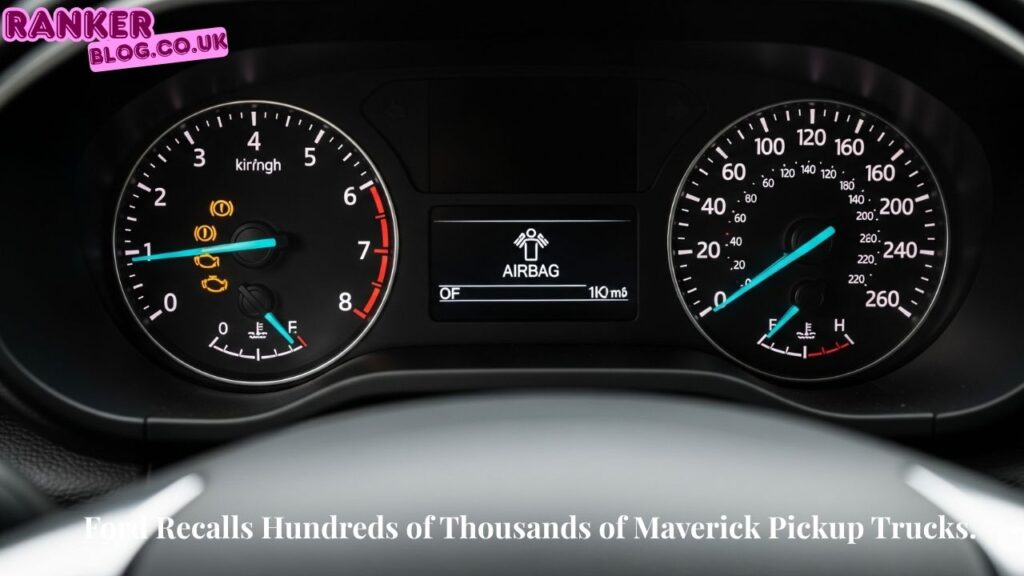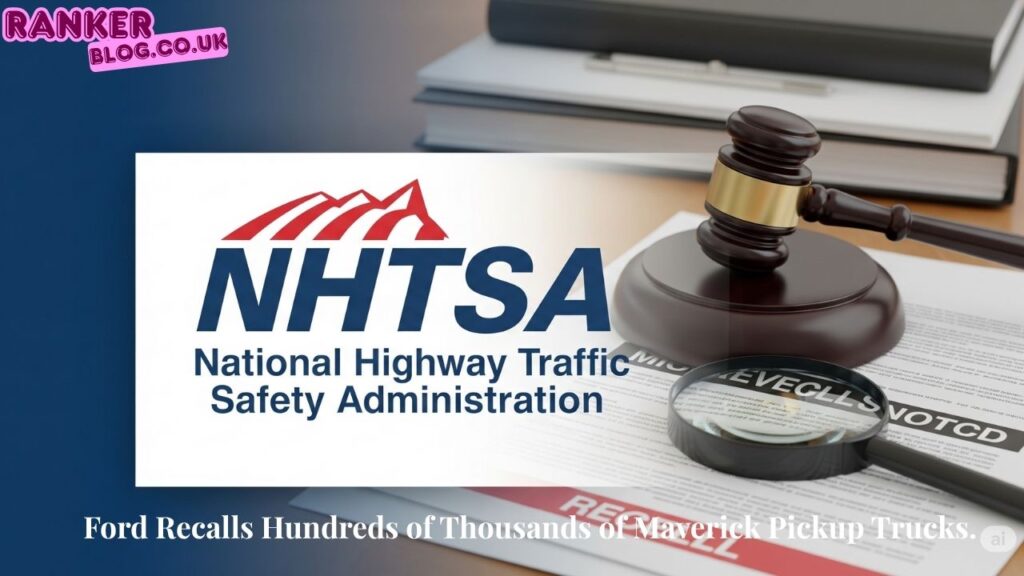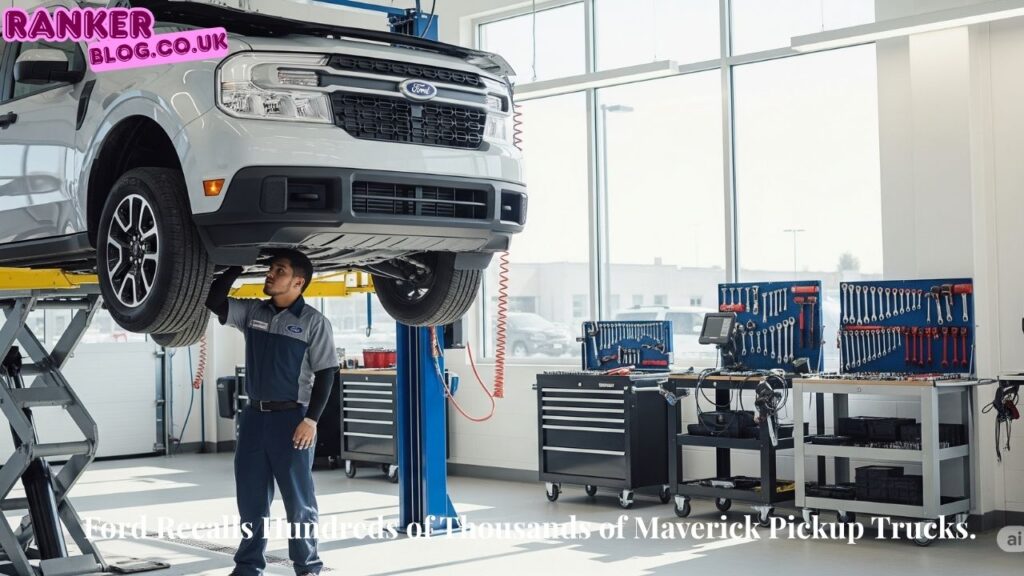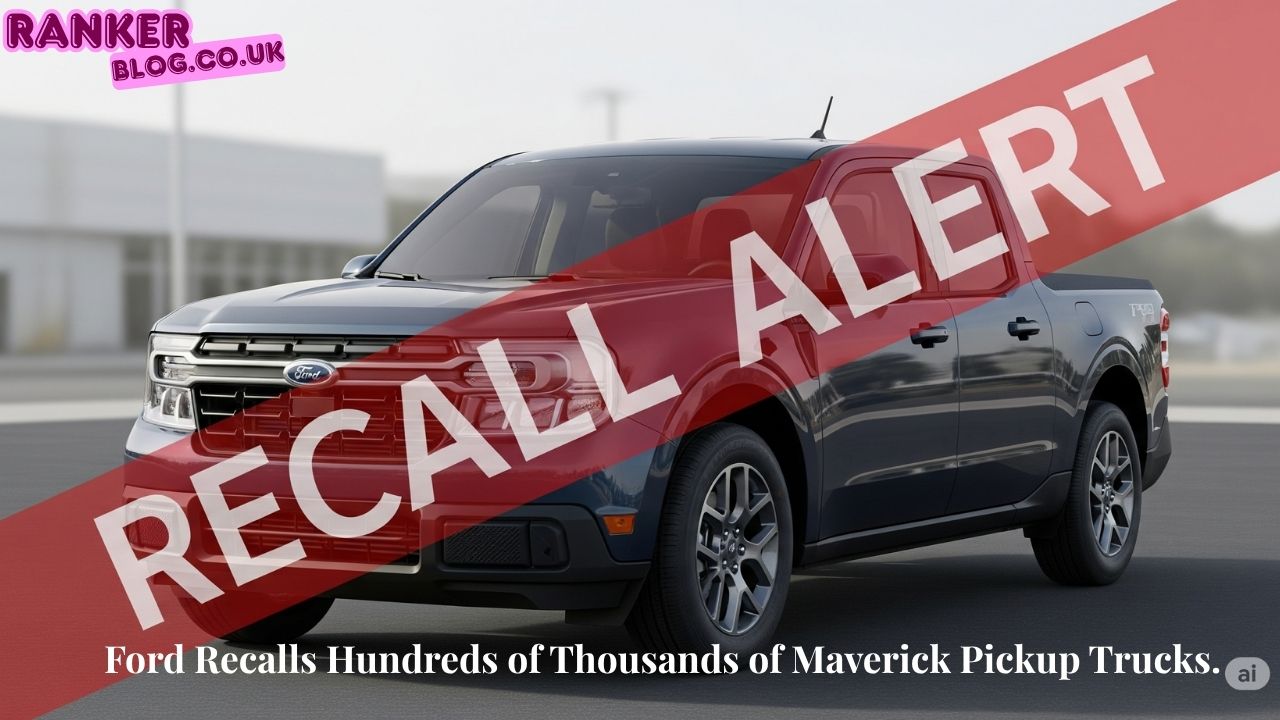Breaking: Major Safety Recall Affects Maverick Owners Nationwide
Ford Motor Company has issued a significant safety recall affecting hundreds of thousands of Maverick pickup trucks across the United States. This recall represents one of the most extensive safety actions taken by the automaker regarding its popular compact pickup truck model. The recall encompasses multiple safety-related issues that have prompted urgent action from both Ford and the National Highway Traffic Safety Administration (NHTSA).
The situation is where Ford recalls hundreds of thousands of Maverick pickup trucks. Affects a substantial number of vehicles, with estimates suggesting that Ford recalls hundreds of thousands of Maverick pickup trucks due to various safety defects. These issues range from software malfunctions to hardware failures that could potentially compromise vehicle safety and performance. Maverick owners are strongly encouraged to take immediate action to determine if their vehicle is affected and to schedule necessary repairs as soon as possible.
Detailed Recall Information

Specific Safety Problems Identified
The recall encompasses several critical safety issues that have been identified through ongoing monitoring and customer reports. According to recall details, select 2021-2024 Ford Bronco Sport and 2022-2023 Ford Maverick models were recalled due to software flaws preventing proper detection of battery degradation. The issue can cause a sudden loss of power, vehicle shutdown, and failure to restart.
Additionally, the primary issue relates to malfunctioning side airbags that may not deploy properly in certain crashes. This raises the risk of injury in side-impact collisions, a scenario that Ford and the National Highway Traffic Safety Administration (NHTSA) take very seriously.
The technical nature of these defects involves complex vehicle systems that are essential for safe operation. Software-related issues can manifest unexpectedly, potentially leaving drivers stranded or creating dangerous driving conditions. The airbag deployment problems represent a particularly serious safety concern, as they directly impact occupant protection during accidents.
Affected Vehicle Information
The recall covers multiple model years and configurations of the Ford Maverick pickup truck. The most significant of the Maverick-related recalls impacts 933 trucks built between August 20, 2021, and October 9, 2023. These vehicles, already recalled for an issue with the digital instrument cluster not displaying key safety-related information, now need another fix.
The affected vehicles include various trim levels and configurations of the Maverick, spanning from the initial production run through more recent model years. Owners should check their vehicle identification number (VIN) to determine if their specific truck is included in the recall action. The recall notices contain detailed information about manufacturing dates, VIN ranges, and specific vehicle configurations that are affected.
Ford has maintained detailed records of all affected vehicles, making it possible for owners to quickly verify their truck’s status through official channels. The company is working to ensure that all affected vehicle owners receive proper notification and can access necessary repair services.
NHTSA Oversight and Regulatory Response
The National Highway Traffic Safety Administration has been closely monitoring Ford’s recall actions and ensuring compliance with federal safety standards. The unprecedented scale where Ford recalls hundreds of thousands of Maverick pickup trucks has drawn particular attention from regulators. Ford has had the most recalls of any car company this year. In 2024 alone, they have had 51 total recalls, and in some cases, these recalls have impacted hundreds of thousands of vehicles. Following this string of part recalls, the U.S. government has launched two separate investigations into Ford’s recall practices. Ford has already been fined $165 million by the government for recall delays, the second-largest fine ever imposed by the National Highway Traffic Safety Administration (NHTSA).

The NHTSA has assigned official recall numbers to each safety issue, allowing for proper tracking and monitoring of repair progress. These recall classifications help ensure that Ford addresses each problem systematically and provides adequate solutions to affected vehicle owners.
The regulatory response includes an ongoing investigation into Ford’s recall practices and the effectiveness of proposed fixes. The agency continues to monitor the situation closely and may require additional actions if initial repair efforts prove insufficient.
Essential Actions for Maverick Owners
Immediate Safety Precautions
Maverick owners should take several immediate steps to ensure their safety while using their vehicles. First, it’s crucial to check whether your specific truck is affected by visiting the Ford recall website or using the FordPass app. You can check for recalls on your vehicle through the Ford Recall page or the FordPass®* App. Note: Recall letters are mailed to the vehicle’s last known registered owner within sixty days of the recall being issued by the National Highway Traffic Safety Administration
For vehicles with known software issues, owners should be particularly cautious about sudden power loss situations. It’s advisable to avoid highway driving during peak hours and to keep emergency contact information readily available. Owners should also be aware of any warning lights or unusual vehicle behavior that might indicate the presence of recall-related problems.
Steps to Take Next
Once you’ve confirmed that your Maverick is affected, the next step is to contact your local Ford dealership to schedule repair appointments. The dealership can provide specific information about repair timelines and any temporary solutions that might be available. Ford customer service representatives are trained to handle recall-related inquiries and can provide guidance on prioritizing repairs based on safety concerns.
Documentation is important throughout this process. Owners should keep records of all communications with Ford, including service appointments, repair work performed, and any ongoing issues. This documentation can be valuable if additional problems arise or if compensation becomes available for inconvenience or related expenses.
Rights and Warranty Coverage
Recall repairs are performed at no cost to vehicle owners, as mandated by federal law. This includes both parts and labor costs associated with addressing the safety defects. In some cases, owners may be eligible for additional compensation if they have experienced significant inconvenience or if their vehicle has been out of service for extended periods.
Ford’s warranty coverage continues to apply to recall-related repairs, and the company may extend certain warranty provisions to address any concerns that arise from the recall fixes. Owners should discuss warranty implications with their service advisors to understand how recall repairs might affect their vehicle’s coverage.
Ford’s Official Response and Repair Strategy
Ford has issued comprehensive statements regarding the recall, emphasizing their commitment to customer safety and satisfaction. The company has developed specific repair procedures for each identified issue, with many fixes involving software updates that can be completed relatively quickly at authorized dealerships.
The automaker has established dedicated customer service resources to handle recall-related inquiries and has expanded service capacity at dealerships to accommodate the increased demand for repairs. Ford’s communication strategy includes direct outreach to affected owners through mail, email, and phone contacts to ensure awareness of the recall.
All the recalls we’ve received have fixes that have been applied to our truck, largely via software updates. As a refresher, the previous batch included: Safety Recall 23S27 (NHTSA Recall 23V380): This is the one for fire risk. It took nearly a year for the fix, a software update for some of the earlier issues, demonstrating Ford’s ongoing commitment to resolving safety concerns.
The timeline for repairs varies depending on the specific issue and parts availability. Software updates can typically be completed within a few hours, while hardware replacements may require longer service appointments. Ford is working to minimize customer inconvenience while ensuring thorough and effective repairs.
Impact on Ford and the Automotive Industry
The extensive recall action has significant implications for Ford’s reputation and market position. The massive scale at which Ford recalls hundreds of thousands of Maverick pickup trucks has raised questions about quality control processes and design validation procedures. Since its launch, the Maverick has been subject to multiple recalls involving critical systems such as the electrical system, powertrain, braking components, and lighting. This pattern of recalls has raised questions about quality control processes and design validation procedures.

Market analysts are closely watching how the recall affects Ford’s stock performance and customer confidence in the Maverick brand. The company’s response to these challenges will likely influence future purchasing decisions and brand loyalty among truck buyers.
Compared to other automotive recalls, the Maverick situation represents a significant test of Ford’s crisis management capabilities and customer service infrastructure. The automotive industry as a whole is experiencing increased scrutiny of safety standards and recall procedures, making Ford’s handling of this situation particularly important for industry-wide practices.
Ford Maverick: Background and Market Position
The Ford Maverick was introduced as an affordable, compact pickup truck designed to appeal to younger buyers and those seeking fuel-efficient utility vehicles. Despite the challenges where Ford recalls hundreds of thousands of Maverick pickup trucks. The vehicle has maintained popularity for its innovative features, competitive pricing, and versatile design that bridges the gap between traditional pickup trucks and more car-like vehicles.
The truck’s market position as an entry-level pickup has made it attractive to first-time truck buyers and urban consumers who need occasional hauling capability without the size and fuel consumption of full-size pickups. However, the recurring recall issues have created challenges for maintaining this positive market reputation.
Sales figures for the Maverick have been strong despite the recall concerns, indicating continued consumer interest in the vehicle’s core value proposition. The target demographic includes younger professionals, small business owners, and recreational users who appreciate the truck’s practicality and affordability.
Conclusion and Next Steps
The situation where Ford recalls hundreds of thousands of Maverick pickup trucks represents a significant safety issue that requires immediate attention from vehicle owners. The combination of software defects, airbag malfunctions, and other safety-related problems makes it essential for Maverick owners to verify their vehicle’s recall status and schedule necessary repairs promptly.
Ford’s comprehensive response includes free repairs, expanded service capacity, and ongoing customer support to address the affected vehicles. While the situation where Ford recalls hundreds of thousands of Maverick pickup trucks presents challenges for both the company and vehicle owners, the proactive approach to addressing safety concerns demonstrates the importance of regulatory oversight and manufacturer accountability.
Maverick owners should remain vigilant about their vehicle’s performance and should not hesitate to contact Ford customer service or their local dealership with any concerns. Staying informed about recall developments and maintaining open communication with Ford representatives will help ensure that safety issues are addressed promptly and effectively.
For the most current information about recalls affecting your Ford Maverick, visit the official Ford website or contact Ford customer service directly. Regular monitoring of recall notices and prompt action when issues are identified will help maintain the safety and reliability of your vehicle.
Also Read: United Airlines Flight UA770 Emergency Diversion: Barcelona to Chicago Flight Safely Lands in London

